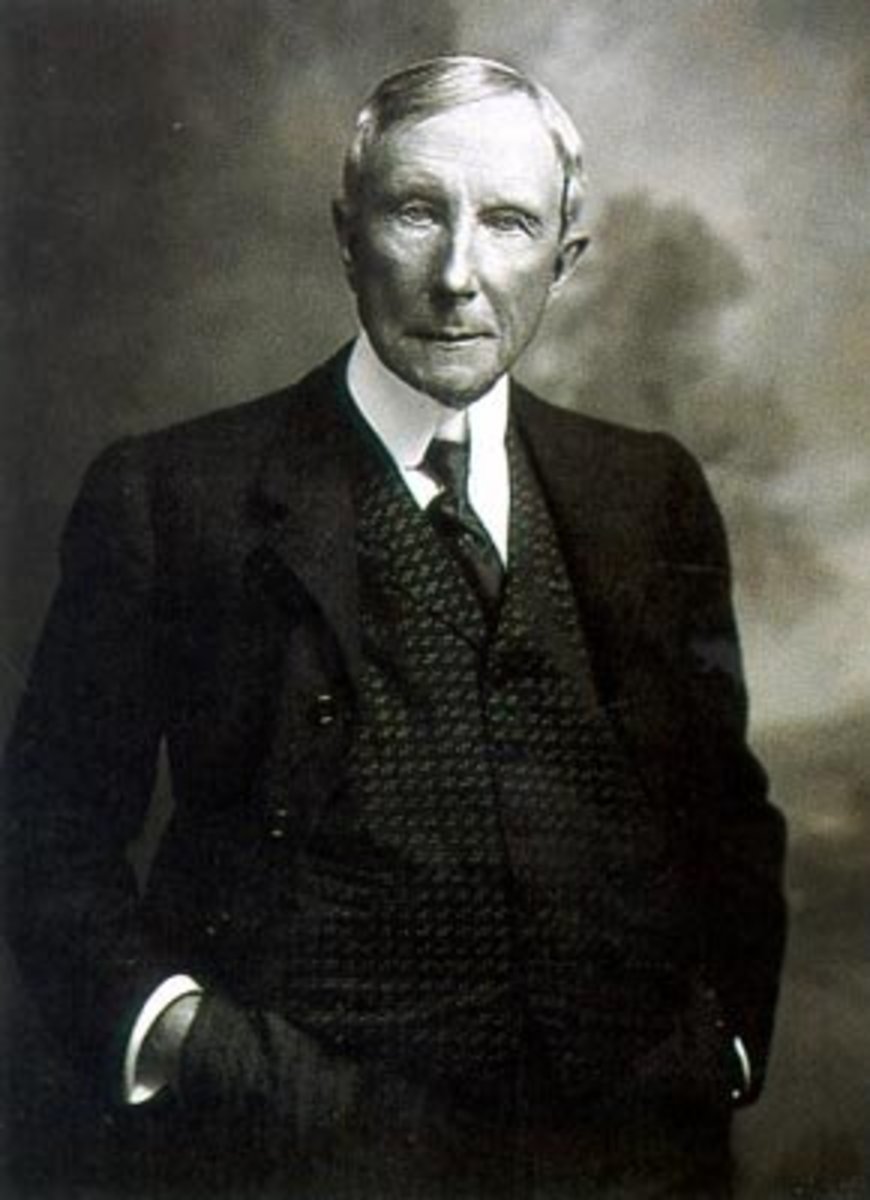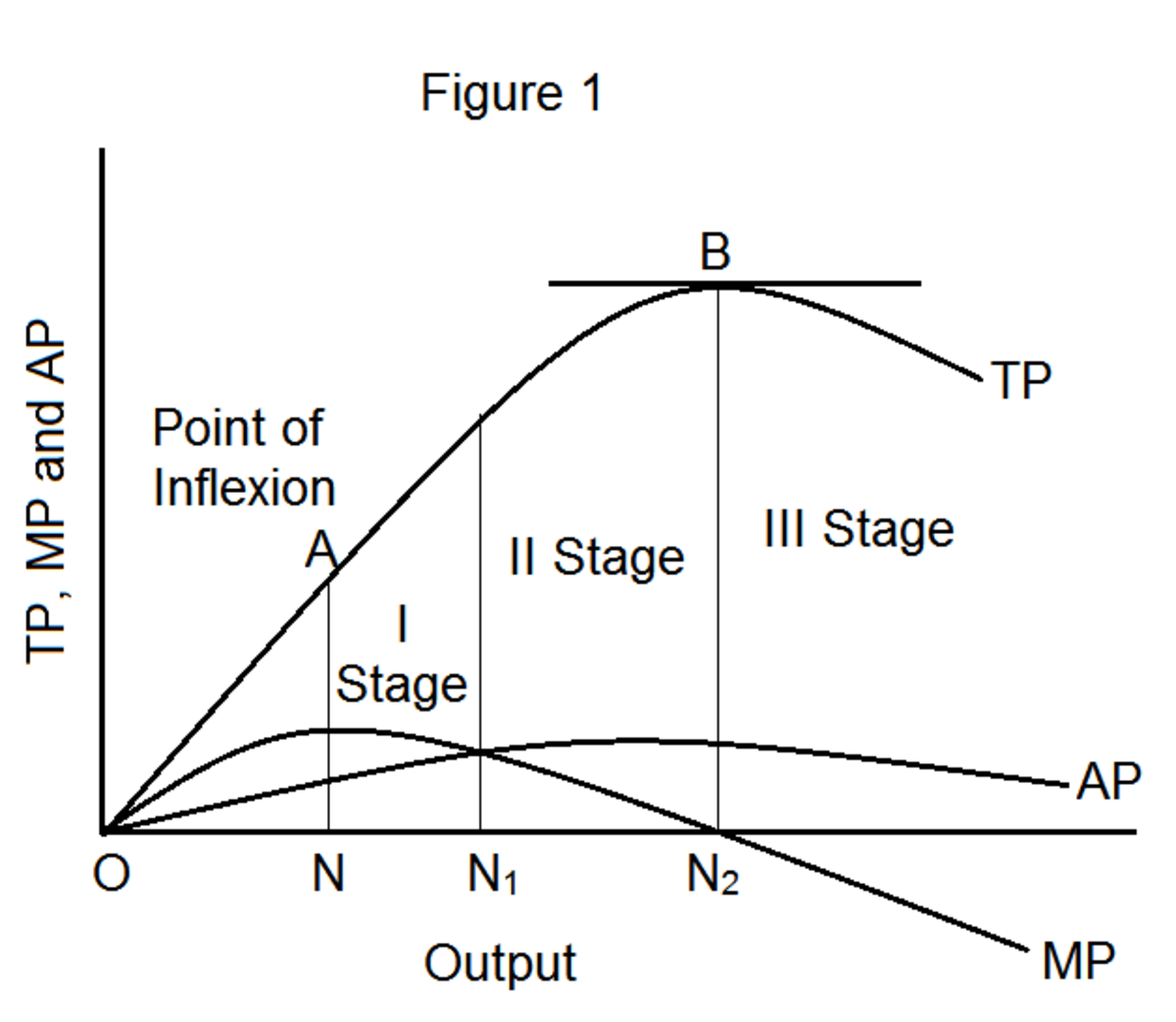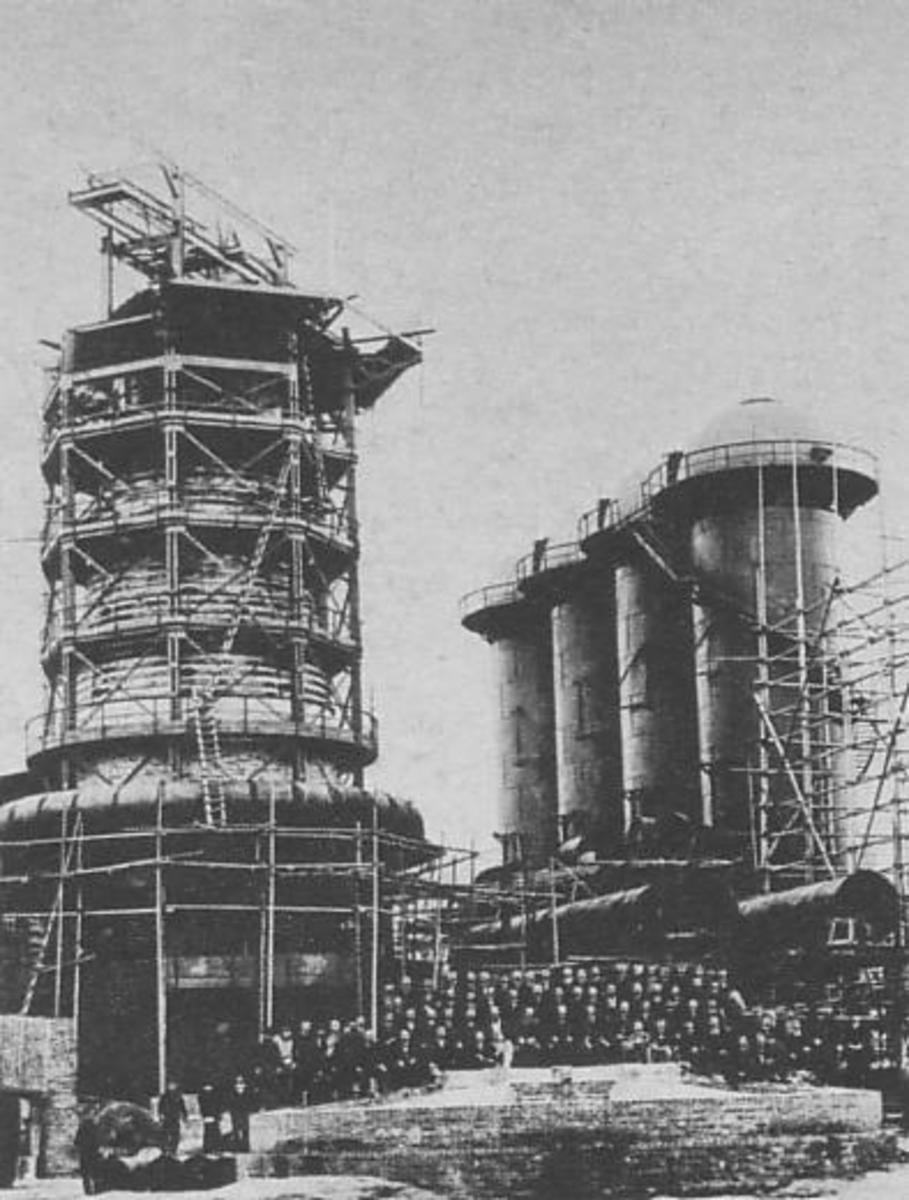What Oil Can and Cannot Do
Yesterday while pumping gas and glaring at the price I was having to pay, somewhere in a dusty corner of my mind was an essay I'd read years ago. It was a cleverly crafted piece of literature where the author showed what our world would be like if we were back in the horse and buggy days. To capture the essence of the essay -- we were basically knee deep in horse manure thanks to over population and wastefulness of natural resources.
So today, when I reached for a resource book that I'd bought at a local book auction, a yellowed newspaper article from 1934 floated to my feet. The title, Oil and What It Can Do, has been laughing at me all morning. It's had me thinking about what oil can and cannot do.
Now, I find a lot of inspiration in what I find in old books. I'm somewhat a book-a-holic. Here in Central Florida, there is a large Salvation Army that holds back lot auctions several times a week. Competition is fierce when it comes to the by-the-pallet-load books that are auctioned off.
Books fall into that category of items that there are far too many of being donated to charity (along with out-dated computers, furniture, and items for toddlers), so there is a need to get rid of them by the non-profits. Books attract a lot of buyers who are resellers on Ebay, Amazon, and Craigslist. There is money to be made from books. However, it's these little surprises that I like the most about books by the pallet load. Today, they've given me a new perspective about oil.
Sometimes, inside a book you find treasures and I found one in a very short article about oil. Tucked inside the pages one can find cash, photographs, love letters, poems, obituary notices, and quite a few clipped articles like the one I'm staring at this morning. When it comes to oil -- It is, was, and always will be about money --and about what oil can and cannot do. Even with oil, we are all about to get sucked down into more horse manure than we ever dreamed existed.
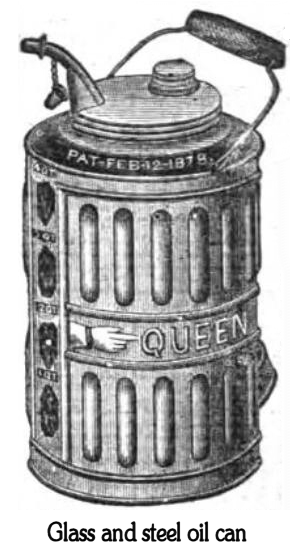
Well, to hear the nightly news tell the story of oil, it is one of the most valuable things known to us, and that little tidbit of knowledge is as remarkable, as it is important. Of course oil exists in many forms. It is composed mainly of hydrogen and carbon. The word for oil itself comes from the Latin name for olive oil -- oliva.
There are three sources of oil -- plants, animals, and in the earth. Of course here, however, we are not talking about the many vegetable and animals oils, but the strange oil which in the past oozed out of the ground and more importantly the enormous quantities of oil obtained by drilling deep holes in the earth. For those of you who don't know it, oil from the earth also has the roots of it's name, petroleum, on the same Roman foundation in the Latin words for rock (petra) and oil (oleum).
Since practically when time began, petroleum has revealed itself in many places around the globe by oozing from the surface. Ancient peoples both knew it and used it.
To me, it's almost laughable that in the Bible, in the book of Genesis, you'll find the Vale of Siddim described as full of "slime pits" which was of course oil. It occurs to me that the woes of oil, might have all of us abandoning the name oil and start calling it "slime" once again -- just on the principal of all the indirect misery it has caused mankind. It's beginning to look like it's going to be our downfall.
Then, there is the ancient historian Herodotus referring to the oil pits near Babylon, and to the oil spring on the Island of Zante, which was still yielding oil two thousand years after Herodotus wrote about it. Pliny the Elder wrote about it. Even ancient Chinese and Japanese writers made many references to the subject.
Perhaps, the best mention of oil in history, however, was that of the great Venetian traveler, Marco Polo. He told us of the oil of Baku on the Caspian Sea. He wrote about, in his vivid fashion, of "a fountain from which oil springs in great abundance, inasmuch as a hundred ship loads might be taken from it at one time." He added that, "This oil is not good to use with food, but it is good to burn."
He was of course, referring to mineral oil, is found at a very different depth of the earth than petroleum. Mineral oil gave off an inflammable gas, and this led to the ancient worship of mysterious fires. There were still fire worshipers in Baku in Marco Polo's days, and temples were erected at which what was supplied to be "everlasting fire" was visited by pilgrims. Thereabouts, too, petroleum gas was not only worshiped, but was actually made use of to light dwellings and to cook food (despite the fact that it has a very unpleasant smell).

America's Short First Romance With Oil
The early explorers of what is now the United States found petroleum oozing out of the ground or floating on the surface of the water in many places. They found that the Indians rubbed their bodies with it and that they often thought it made them active and quick.
So when our country became settled, we began to use it in a small way. Sometimes we laid blankets on the ground where the oil appeared and then wrung it out of them. Sometimes we skimmed it off the surface of the water. The quantity gained in these manners were small.
It was then sold by peddlers at a high price, as Seneca Oil, Indian Oil, or some other such name. It was rubbed on the body as a cure for rheumatism, or taken as a medicine. Few families would use more than a pint a year. That would all change with the appearance of a new word "kerosene" and the genius of a man named Dr. Abraham Gesner (of Nova Scotia).
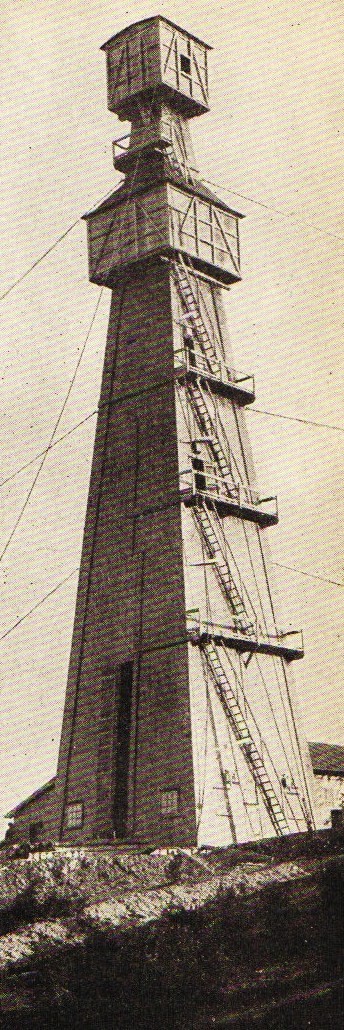
The First Appearance of the Word Kerosene
In 1840 Dr. Abraham Gesner, obtained an oil from coal which he afterward called "kerosene" from the Greek word meaning "wax." He quickly organized a company to manufacture it. The company was successful and other oil works were established.
The demand grew and a Dr. Silliman of Yale, was employed to find out whether there was any likeness between coal-oil and petroleum.
He conducted his experiments in Oil Creek Pennsylvania and reported that petroleum furnished excellent oil for burning.
Then, Samuel M. Kier sold some oil for burning in 1848 under the name of "carbon oil." It sold for a dollar and a half a gallon and had a horrible odor. It was a full two years later that an Englishman, named James Young, would discover how to get oil from shale and burn.
People began to want more of this oil and in 1856 it was determined to seek better sources of this by boring a well deep into the earth.
The company employed a man named Edwin L. Drake to supervise the work in Titusville, Pennsylvania. He had been a railroad conductor, who had resigned because of ill health.
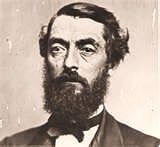
Colonel Drake's Oil Woes
I cannot help but wonder what the Colonel (the nickname of Edwin L. Drake) would think about the world's current oil woes. He certainly had his own unintended troubles when it came to petroleum.
Back in his day, money was scarce and at one time it was thought that the work must be given up, but Colonel Drake was determined to go on and borrowed the money necessary to keep the drillers at work.
On Saturday, August 18, 1859, the drill seemed to move easily just before the workmen stopped for the day. Sunday, one of them visited the well and found it nearly full of oil. A pump was then attached on Monday, and the well was found to yield twenty barrels a day. The whole region went wild.
Every foot of land along the creek was bought or leased by men who intended to drill for oil. Wells were sunk in every direction. The town grew in a few months from a population of a few hundred to fifteen thousand. Many men grew rich almost at once. The news spread, and men in other sections where oily springs had been found, also sunk wells.
Colonel Drake's well, however did not last many years. Gradually the yield grew less and less and finally gave out altogether. Colonel Drake had thought that it would last forever and did not try to buy or lease any other land.
Finally, he left the oil region with a mere $16,000 which he afterward lost, while other men gained millions in the oil business. His life ended up so impoverished, that when some of the big oil men who had gotten rich off his efforts, raised some money for him. Even the legislature of Pennsylvania voted $1,500 a year pension for as long as he and his wife should live.
I suspect he learned a lot that we should all be aware of, like how an endless supply of oil:
- Will not last forever
and
- The greed of those who own and control oil
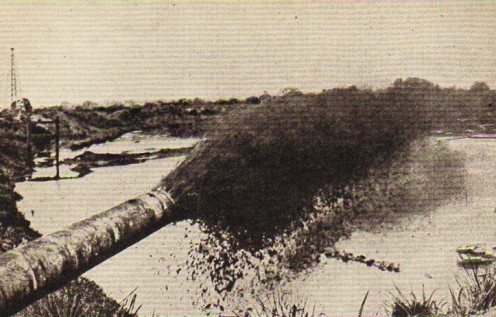
Gushers
At some level, most of us know that the oil under the earth is under pressure, and if the oil rocks are drilled, the oil is forced up to the surface of the earth like a fountain. This is what oil men called a "gusher." In some wells there is water under the oil, which pushes it up. From less abundant fields the oil has to be pumped.
Back in the Colonel's days, no one knew how much petroleum there is in the world. Yet, even then, they pretty much knew that unfortunately, someday we will run out of oil world-wide. It would shock many here in the U.S. to know that in 1934 our country produced two-thirds of the world's oil.
Much of our oil in the early days came from Pennsylvania, Texas, California, Oklahoma, Kansas, Louisiana, Arkansas, and Wyoming. Even in 1934, people were already aware of the prodigal waste of oil, particularly in this country.
Men in a hurry to get rich quick used hasty, heavily criticized ways, to tap oil fields that essentially threw away the product through bad storage methods and through fires. Much was wasted through competitive drilling. The end result of such practices in early oil days even made leading scientists to predict that America would use up it's entire supply of oil by 1940. That gloomy prediction didn't exactly happen on cue, but the truth is we don't have enough oil to take care of our own oil needs and far worse we've known it for a long time.
Where the subject gets exceptionally problematic is that our false god of gasoline, can only be extracted from a small proportion of given petroleum. So, that brings me back to that small 1934 yellowed newspaper article that someone decided was important enough to clip out and save, it said:
"What oil can do, it can only do until there is no more oil in the world, and then, what do we do?"
Strikes me odd that seventy-five years later, no one has agreed on the answer. This makes me think we're really all going to be standing knee deep in horse manure. The smell of those greedy powers who got us there, is going to be awfully bad. It's not something we'll be able to easily forget or forgive -- perhaps that's who and what we will call "slime."


